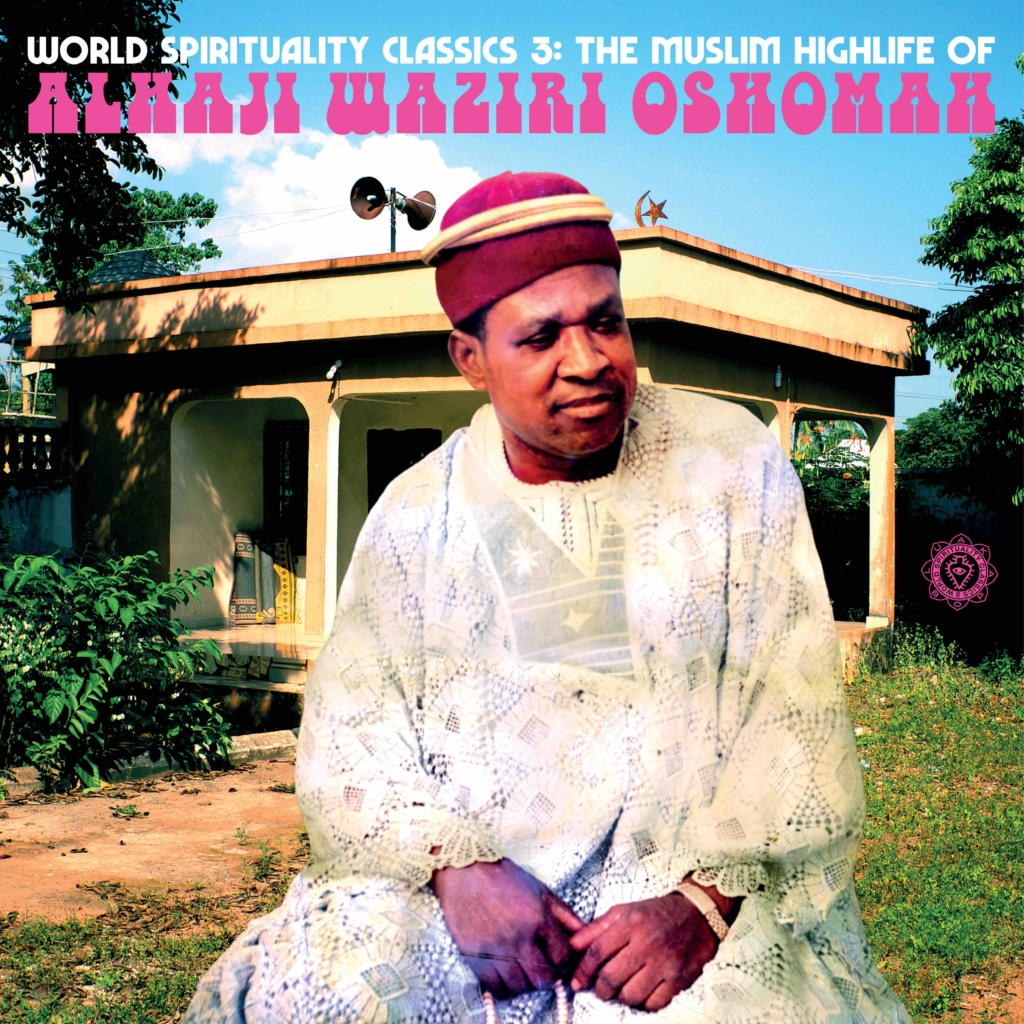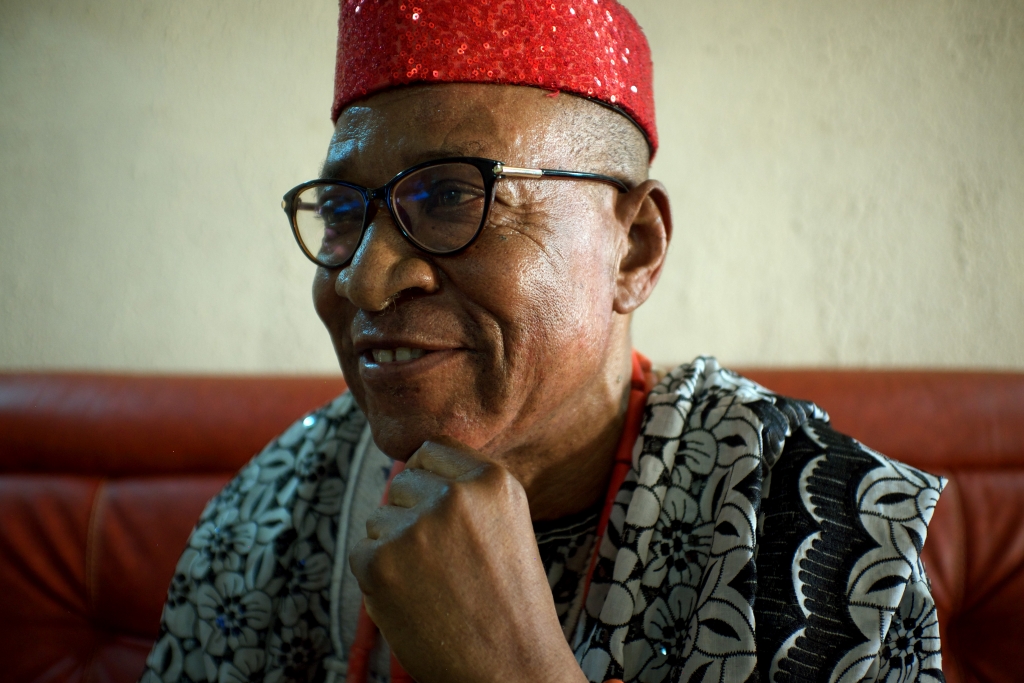Alhaji Waziri Oshomah
The Muslim Highlife of Alhaji Waziri Oshomah (Luaka Bop)
Contact Sam McAllister about Alhaji Waziri Oshomah
This Friday, Luaka Bop will release The Muslim Highlife of Alhaji Waziri Oshomah, the third volume of their widely celebrated World Spirituality Classics series. Originally initiated to offer some form of positivity, The Muslim Highlife of Alhaji Waziri Oshomah follows the acclaimed World Spiritualty Classics releases of Alice Coltrane Turiyasangitanada’s ecstatic music and private press gospel soul compilation The Time For Peace Is Now, both of which were awarded Best New Reissue by Pitchfork. The atmosphere of The Muslim Highlife of Alhaji Waziri Oshomah is one of enjoyment, excitement and pleasure, because to see Waziri perform, is to be addressed, body and soul. Today, they present its last pre-release single ,“Okhume Ukhaduame,” which is a song that celebrates acknowledging one’s own success in life, even if there are those out there who want you to fail. With his wife on backup vocals, Waziri goes toe to toe with a muted, shuddering trumpet as he defends his achievements: “My enemies will never succeed in their plot to bring me down,” he sings, “whether in the morning, day or night, because I wish nobody evil in my life.”
Born into a Muslim Afenmai/Etsako family in southern Nigeria, Waziri was entranced not only by the highlife sound emanating from Lagos, but by Etsako groups, who favored driving guitar lines over the flamboyant horn sections of the capital. When his parents disowned him for fear he had strayed too far from his faith, Waziri responded by infusing his music with the teachings of Islam. In 1970, against a backdrop of the Nigerian Civil War, Waziri cut loose and started his own band, pouring Western-influenced instrumentation, electronic flourishes, and soul phrasing into the deep well of the region’s indigenous folk styles. Without transport, the band would regularly walk miles to gigs carrying what equipment they had on their heads.
First recorded between the mid-’70s and mid-’80s, The Muslim Highlife of Alhaji Waziri Oshomah spans the years when Waziri first completed the hajj. Despite drawing comparisons with the electronic sounds of William Onyeabor, the visceral afrobeat of Fela Kuti, and Ebo Taylor’s Ghanian guitar-led highlife, Waziri’s is a world unto itself. It is a world where musical expression and Islamic culture moves hand-in-hand. Soul music in the truest sense of the word.

